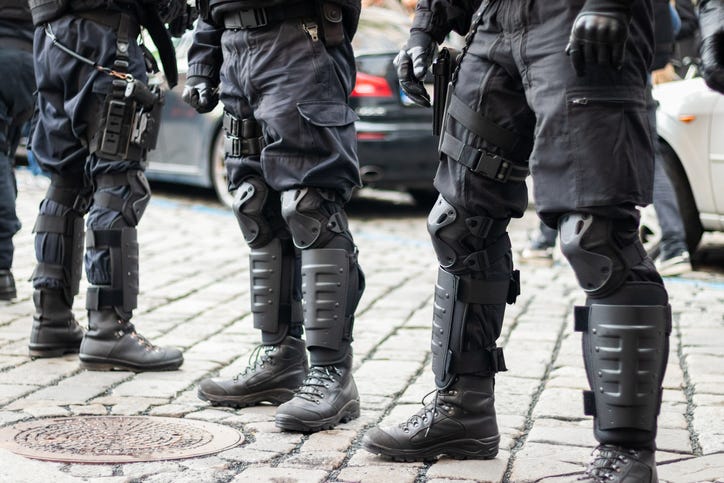
Following the death of Amir Locke during the execution of a "no-knock warrant" last week, the city of Minneapolis is looking into a 2020 policy that was supposed to ban the practice.
The city has contracted Dr. Peter Kraska from Eastern Kentucky University to review the policy, and he joined News Talk 830 WCCO's Adam Carter to discuss his work.
Kraska, a professor of justice studies, shared that he has yet to start his review of the policy but has helped other cities put similar policies in place.
"I've been studying issues of police militarization since the 1980s," Kraska shared.
The professor said that he has discovered no-knock warrants becoming increasingly common, starting at around 1,000 a year when he began his research, and approximately 60,000 now happening every year.
As for what no-knock warrants are used for, Kraska shared that, historically and today, around 95% are used for investigative work related to low-level drug crimes.
The professor added that "breaking into people's residences" through the use of the warrant is to obtain information or evidence for the low-level offenses.
Kraska shared that there are times when a no-knock warrant is needed, but the situation is complicated.
"Those are extremely rare, and they should be approached as such," Kraska said. "It's really hard to write policy that reigns in the ubiquitous problem of no-knock drug raids and at the same time allows some wiggle room for extreme circumstances."
It has been reported that the Minneapolis Police Department said it would not conduct the search on behalf of the St. Paul Police Department unless it could be done with a no-knock warrant. The St. Paul Police Department shared they have not used the practice since 2016.
As for other major cities and police departments starting to move away from no-knock warrants, Kraska shared it is getting more common.
"There are plenty of departments that see this as an extremely high-risk, low reward endeavor, and they come up with all kinds of alternatives to avoid doing it," Kraska said. "On the other hand, there are lots of departments that have devolved into a very liberal mindset in terms of 'let's do this whenever and however possible we can.'"
Kraska said that departments will execute their no-knock warrants and their normal warrants without announcing themselves.
When it comes to other methods that could be used instead of no-knock warrants, Kraska admitted that they could be more costly. Other practices he's seen include surveillance, holistic investigations, and other intelligence-gathering methods.
As for the no-knock warrant executed that resulted in the death of Locke last week, Kraska says it's clear the police put themselves in a very precarious position.
"It's, to me, striking and obvious that the police put themselves in a really precarious position doing what they did," Kraska said. "I think police departments really have to rethink the current reality of gun ownership in this country and realize that this no-knock approach is increasingly volatile and dangerous, and there are probably much better alternatives."


